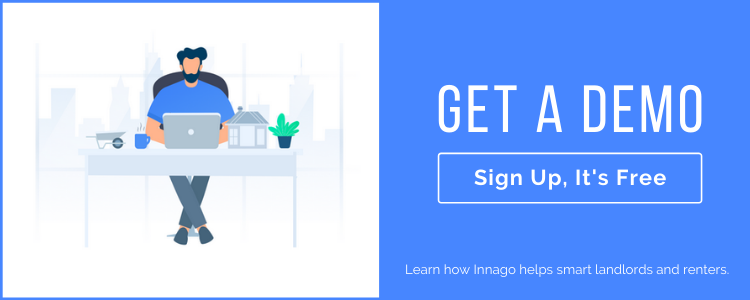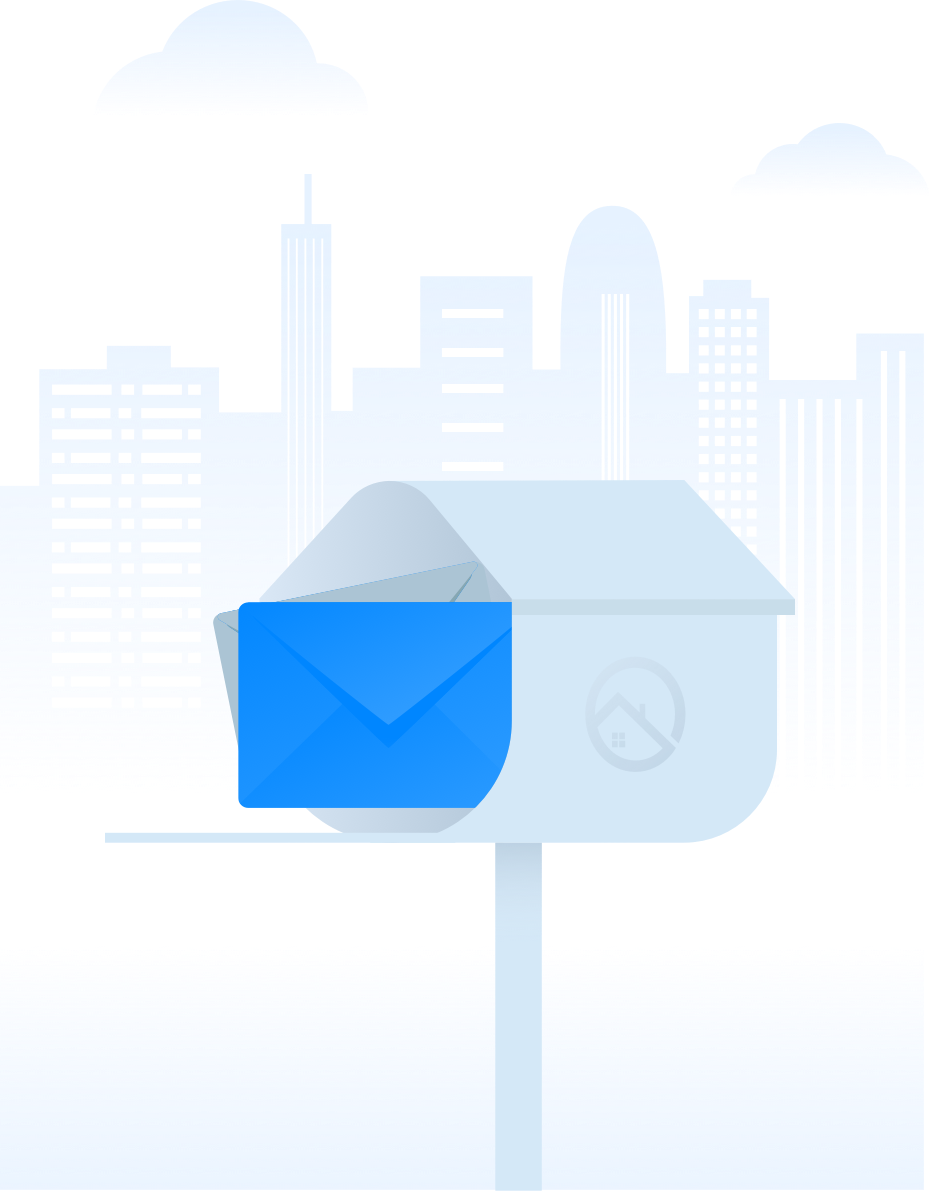BACK
- Landlord
- Tenant
BACK
BACK
In 2018, homeowners purchased approximately 5.34 million existing homes in the U.S. In the same year, they purchased an additional 667,000 newly constructed units. The Association of Real Estate License Law Officials estimates that there are more than 2 million active, licensed realtors in the U.S. facilitating these sales. For those disinclined towards math, this means realtors each handled, on average, about 3.5 home sales last year. That number, of course, doesn’t include the prospecting the realtor had to do or the sales they worked hard on but ultimately didn’t close.
These real estate professionals could be working for an agency, collaborating with a team, or running their own one-person operation. In addition to their responsibilities as a broker or agent, many of these real estate professionals also manage properties – their own properties or the properties of some of their clients. The professional (and likely personal) life of a real estate agent is therefore busy, and if the properties they sell and / or manage are not located in a centralized location, the issue is compounded.
Thanks to the availability of property management software, however, managing multiple properties isn’t an impossible task. Software platforms offer users several benefits, including mobility, tighter security, and faster transactions. Let’s examine some of these benefits in more detail.
Thanks to the availability of property management software, however, managing multiple properties isn’t an impossible task.
#1 – Mobility, Scalability, Security and the Cloud
Cloud storage may seem like a foreign concept to some, but for property managers, it means freedom. As a result, cloud-based property management software offers a great deal of convenience and peace of mind. If you’re unfamiliar, the cloud refers to data stored externally on large servers secured and managed by professionals, that can be accessed digitally, typically through the Internet. This means that, as long as a stable internet connection is available, you can access the necessary information and programs easily from anywhere, whether you’re on a mobile device, laptop, or desktop. With that kind of increased access to key information, you can complete tasks and respond to your customers’ needs more quickly. For realtors constantly running around from location to location, mobility is an enormous advantage.
Additionally, as you grow your real estate empire, cloud-based platforms can grow with you. These Internet-accessed programs typically enjoy regular software updates with new features and refined user experiences. Further, you can expand your virtual storage space whenever you need it, no more need to upgrade your hardware every year. This is particularly beneficial if you have multiple properties or numerous units that you oversee; a large volume of documents, files, photos, and videos are nearly certain with a large portfolio of units. The ability to scale isn’t just helpful for managing the paperwork for multiple properties. Scalability makes it possible for property managers to add space for additional employees, suppliers, and more.
A quick but important note – some cloud-based software (Innago not included) charge extra as your digital footprint grows. Be sure to check the fine print to ensure you’re not paying more than you expected and that you’ve found a platform that offers the storage you need.
A big misconception when storing information online is that it is insecure. Yes, it’s true, data breaches happen, and if your data is stored on a server that is compromised, your data is almost certainly compromised. But large data breaches grab all the attention. Less publicized are local data breaches of personal computers. The Anti Phishing Working Group reported that in 2013, a staggering one-third of all computers worldwide were compromised by malware, the primary intent of which is to steal data and information. That number has almost certainly gone up since. If you keep your business and personal data stored on your computer directly, you’re relying on yourself and your office staff to keep that computer safe. A click of one seemingly innocuous email can mean your data is entirely vulnerable.
Most cloud-based software companies employ staff-members whose sole responsibility is to ensure the security of data and data transmission. They have expertise and training that is difficult for a small-business owner in real estate to match. Of course, nothing digital is a guarantee, but you may be better protected with cloud-based property management software.
#2 – Centralized Documentation
Another benefit of property management systems is the centralization of documents. Property management software stores everything in a dashboard, which prevents you and your staff from jumping all over a disorganized system to access the information you need. This is important when working with lease agreements, contracts, and other sensitive documents and files. As a result, you can accelerate deals, comply with regulatory requirements on-time, and earn the trust of your clients.
Centralizing access to all your documentation offers another advantage — it protects your files from getting lost or misplaced, meaning you can prevent conflicts, complications, and delays that may arise from missing data.
Some platforms, Innago included, offer your tenants their own login/account. Gone are the days of tenants calling and asking for a brand-new copy of their lease. Simply direct them to their own dashboard where they can pull up any relevant documents that have been previously uploaded.
#3 – Seamless Maintenance Management
Making sure that your properties are in good shape for the next tenant does not have to be difficult. Move-ins and move-outs can be frictionless when you have photos and other materials to offer a point of comparison on the condition of your properties. This can help you check that the most recent tenants did not make radical or unauthorized modifications to units. And if they did, you can be confident that you can hold these tenants accountable with the available documentation. Over the long haul, this can help you keep property costs down.
In the same way that you can use photos and other media to track the condition of occupied properties, you can track the status of units that are vacant for a prolonged period. Tenant turnover can be costly, so these features enable you to quickly see what kind of maintenance work your employees or contractors need to do to ensure move-ins are ready to go as smoothly and efficiently as possible.
Some software comes with useful maintenance features. Innago’s maintenance management features, for example, allow tenants to submit maintenance tickets with pictures, video, and descriptions. Property managers and maintenance personnel can both access these tickets from their own personalized accounts, adding comments and notes as needed. You can quickly assess the maintenance frequency of problem tenants or if you are consistently receiving tickets for the same types of requests (maybe it’s time to upgrade the hot water heater in the building). Property management software makes day-to-day maintenance management faster and more direct, while also enabling you, the owner or manager, to see the forest through the trees.
#4 – Real-Time Transparency
Property management software enhances the way you communicate with your tenants. It enables you to share information with them quickly and clearly through communication tools both automated and manual. Typically, tenants are automatically notified when rent is changed, when late fees kick in, when it’s your tenant’s turn to sign a lease, and when a maintenance request receives an update. And when you need to send out a custom message to an individual or group of tenants, most property management software will make it easy for you to do so.
And here’s where the cloud offers even more benefit. Storing leases and invoice histories in a single platform with individual access points for all stakeholders keeps everyone on the same page and enables you and your team to avoid discrepancies with your renters. Transparency creates trust, and by keeping all this information in one place, realtors turned landlord can provide their tenants peace of mind. They can easily access any historic data and make you quickly aware of any discrepancies they believe exist.
#5 – Automated Tasks and Reminders
Any realtor that has closed more than one deal knows the pain of filling out the same forms over and over again. Redundant tasks take a huge chunk of your time and your team’s time, and it eats into everyone’s productivity. That’s time that should have been spent caring for customer needs and meeting potential clients. Fortunately, property management software can automate several processes, such as welcome emails, invoice reminders, and more.
As your portfolio grows, your time becomes more and more valuable. Most rental management software allows you to create customized email templates to speed up communication in a variety of situations. Late fee reminders are automated, meaning no more awkward interactions between you and your renters. Notifications can be scheduled to go out when leases are expiring as well, so the closing weeks aren’t a surprise to anyone.
#6 – Faster Payment Collection
Automated reminders, more enforceable late fees, and easy mobile access nearly always add up to more timely payments. What’s more, most rental management software offers tenants the ability to enroll in auto-pay so they don’t have to worry about remembering to submit rent each month. And even if they want to handle it manually, tenants can pay by credit card, debit card, or ACH with just the click of a button.
A service like Innago also works to expedite the funds into your account so you’re not waiting days for the payment to settle. What’s more, payments are automatically recorded. Some platforms offer accounting tools, others integrate with outside accounting programs like Quickbooks. Some even offer both. There are quite a few great cloud-based accounting platforms to choose from.
#7 – Reliability and Data Back-Ups
Traditional property management programs that you install on your computer usually receive sparse security updates, and many have already discontinued customer support. On top of that, these programs are prone to permanent data loss should your computer’s hard drive become corrupted for any reason.
A property management system operating in the cloud typically has back-ups and recovery plans in place, so you can proceed with your work with confidence. Business doesn’t grind to a halt because the power is out or your computer crashed. Further, data is still protected and accessible (by you only) if the original device is lost or stolen.
The Bottom Line on Property Management Software
Like most software, property management tools come in a wide variety of shapes and sizes, from the simple and basic, to the more complex. Most provide, to some degree or another, the benefit of the variety outlined above. For realtors, it’s often important to find something easy to use that doesn’t take hours of training to learn and immediately offers improved efficiencies in multiple ways. Understand your business to find the right fit, but if you’re a real estate professional looking for a new way to manage your rental business, expand your portfolio, or both, chances are there’s property management software out there that can provide a huge benefit.
For more interesting articles on managing your properties, be sure to subscribe to our blog, like us on Facebook and follow us on LinkedIn. And, don’t forget to share your thoughts in the comments!
2 thoughts on “7 Benefits of Property Management Software for Realtors”
Leave a Reply Cancel reply
More in Learning Center
What Does the Security Deposit Cover?
Security deposits have been a longstanding norm in the rental business industry....
August 29, 2022
A warranty deed is a legal real estate document where the seller guarantees that...
April 26, 2023
A triplex consists of three individual dwelling units combined into one building...
April 26, 2023








will these work in the uk as we have different tenancy agreements kind regards Mark
Hey Mark, great question. Innago is currently only available for US-based properties, but you can certainly find software solutions to accommodate properties and tenancy agreements in the UK.